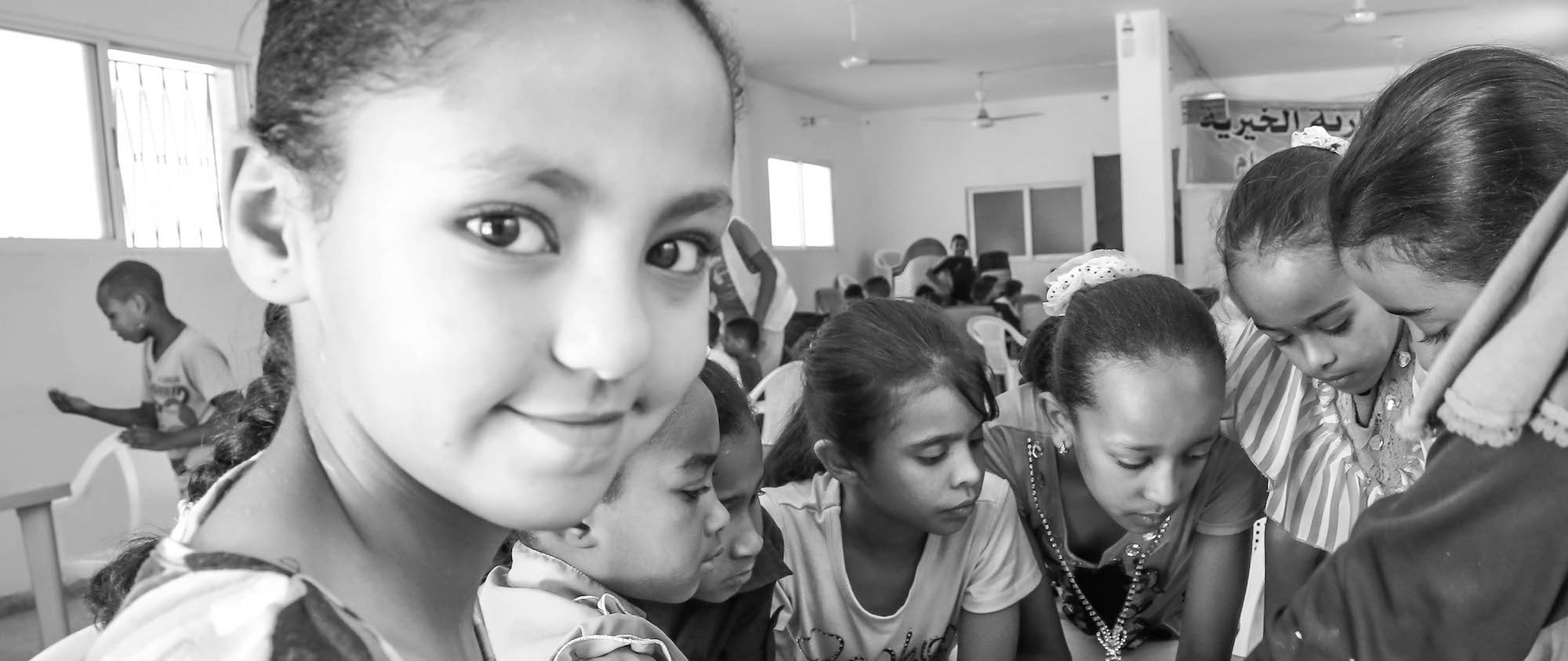
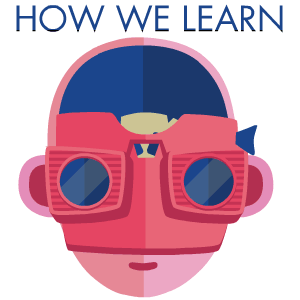
A small nation sandwiched between Syria, Iraq, Palestine, and Saudi Arabia, Jordan rarely grabs headlines like its neighbors. The country is usually described as a stable island of democracy in an otherwise tumultuous region, one known mostly to tourists as a safe place to visit with impressive archaeological sites dating back to 300 B.C.
Jordan is, in essence, a very old country whose defining characteristic is its youth: Out of 9.5 million people, those under 30 years old constitute 70 percent of its population. With such a young demographic, there should be great hope for the nation’s development. Instead, over one million of these millennials are unemployed, accounting for nearly three-quarters of a country-wide unemployment rate that has risen to almost 16 percent. While the Jordanian government projects stability to the outside world, its current rate of joblessness matches other countries’ in the region like Iraq (16.4 percent) and Syria (14.9 percent).
Many of its young people feel they have been left hanging in the balance, unable to secure jobs because of a flawed education system that fails to prepare them for an equally bad job market. A young, powerhouse generation blighted by unevolved schooling and no employment opportunities is sadly not unique–it’s these frustrations in part, coupled with the response to repressive regimes, that drove initial protests leading to the Arab Spring.
Still, Jordan is often ranked among the best in the Arab world for education and could be a representative force for development in the region. And while there has certainly been improvement–the country is enrolling more students (particularly girls) in higher education–progress is failing to keep up with the pace of what Jordanian society demands.

Heavily indebted and reliant on foreign aid, Jordan is a country where affluent families send their children to private schools and foreign universities if they can. Most everyone else, though, struggles to get by on minimum wage (or less), which amounts to just $268 a month.
The Jordanian education system only dates back to the 1920s, when the country was still under the British mandate. It was not until the 1960s, over a decade after Jordan gained its independence, that the first university was founded in the country’s capital city of Amman.
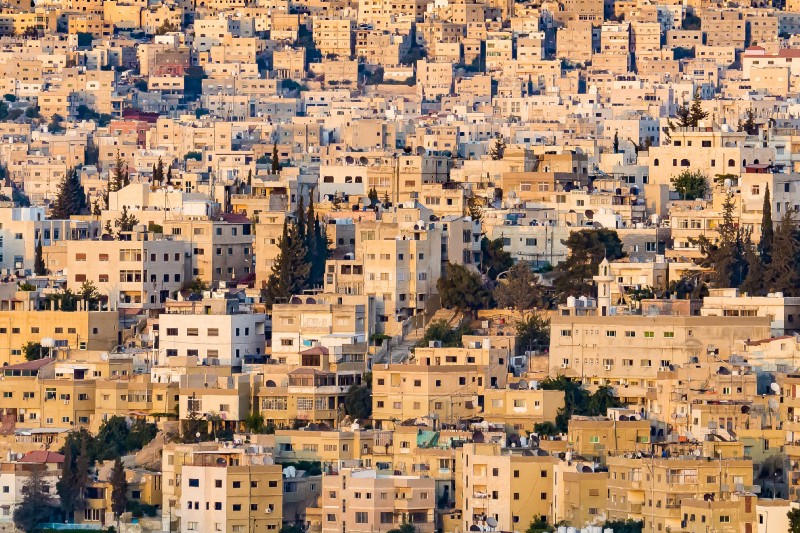
Today, students attending public schools often suffer in overcrowded classrooms lacking up-to-date infrastructure and trained teachers. Education experts criticize an emphasis on rote learning and use of a single exit exam as the sole indicator of a student’s future. At 16, students progress to non-compulsory secondary education which finishes with a year of intensive study toward the “tawjihi,” a certificate that determines whether they can progress into higher education and what they may study. Jordan isn’t alone in this approach–China, Vietnam, Finland, and South Korea all use single examinations at the end of high school as “one shot” methods to determine students’ futures.
Recent results in the tawjihi have been disappointing, however. In 2015, 100,000 students entered the 12th grade. Of those, only 60,000 sat for the exam and an even smaller 40 percent (or 24,000) of those passed. In over 25 percent of all public schools, many of which are concentrated in poor, rural regions, not a single student passed the exam.
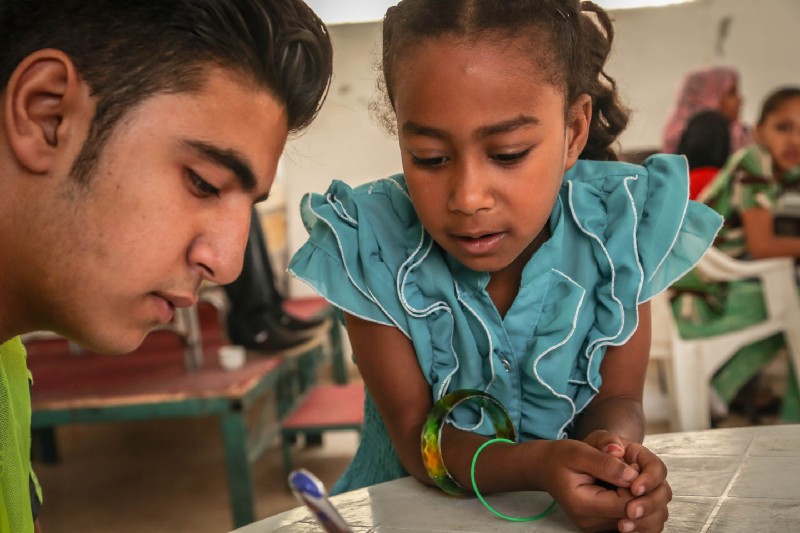
While high school dropout rates are higher among boys, more than a few young girls quit as well, persuaded that marriage is a more valuable option. Expert Mayyada Abu Jaber, founder of World of Letters, sees gender biases in the curriculum as one of the reasons behind early female exits and high female unemployment. “Girls generally perform better [in school] than boys,” she says, “however, the challenge here is”¦ to remove the hidden gender biases in the curriculum to widen girls’ and women’s career options.”
In 2015, unemployment among males with a bachelor’s degree was 22 percent; among females it was nearly 77 percent. One young Jordanian woman, who studied chemical engineering at the university level, tells me: “My generation were sold the idea that an education would provide for you. You will have a secure life if you are educated.” That was the future promised to her at least, especially as she earned one of the most highly valued degrees in Jordan alongside medicine. She has still been unable to find work in her field.
There are also cultural barriers to contend with, reinforced in the school curriculum, which limit women to “culturally acceptable” professions such as teaching, Abu Jaber explains. “In the hidden messages of the national curriculum, women are primarily prepared to enter into the “‘marriage market.’ The situation is gravest for those girls who fail [the tawjihi]”¦ It is either sink or swim for these girls.”
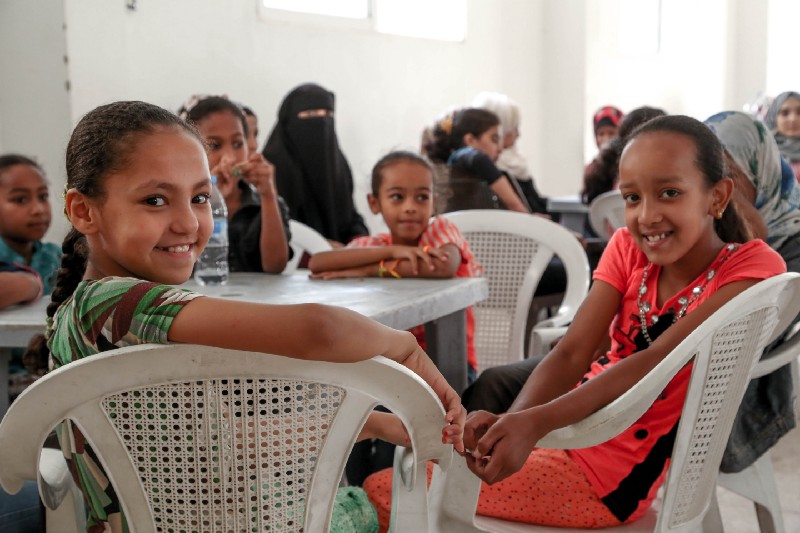
During a recent speech, Queen Rania called on teachers to lead an “educational renaissance” in the country, stressing that “development requires substituting methods of the past with those compatible with the needs of the future.” The stylish, social media-savvy first lady of Jordan’s royal family is well known for her charity and advocacy work. She has contributed to several education initiatives, including Madrasati, a program to refurbish public schools across the nation, and the Queen Rania Foundation for Education and Development, which runs the Arab world’s first MOOC [Massive Open Online Course] platform, Edraak. As a spokesperson for the country the queen is progressive, looking to update teaching methods and integrate technology. But outside resistance and figuring out how to implement systemic changes remain formidable foes.

There’s been some recent movement by the government to reform curricula in Jordanian schools–but it’s been controversial. In an attempt to curb growing extremism in the country, the Ministry of Education has initiated revisions to textbooks and coursework that acknowledge Christians as a demographic component of the population, include pictures of churches alongside mosques, remove certain verses of the Quran, and show images of unveiled women. But conservatives are up in arms about the changes, calling them “an affront to our heritage and values aimed at distancing future generations from its religion, its Arab identity, its history and traditions.”
While there have been a number of similar, scattered efforts toward change, successive Jordanian governments are yet to propose a fully-fledged reform mandate. Much of what’s being done, as is common in developing countries, is happening as a result of NGO and international aid.
One of the bigger initiatives spearheading educational reform is INJAZ, an NGO particularly interested in supporting financial literacy and entrepreneurship. With strong government links, the organization works with schools, universities, and civil society organizations across the country with the intention of developing soft and hard skills that will prepare older students for the modern labor market.
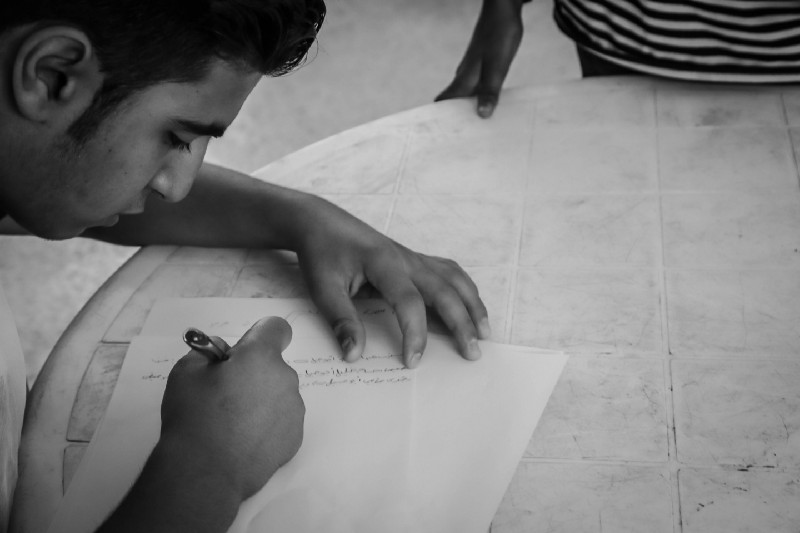
“We focus on economic empowerment,” says CEO Deema Bibi, “but also on social empowerment.” The NGO has proven itself in that regard, with independent evaluations stating that university students who participate in its programs are three times more likely to be employed after graduation.
For the last five years, in tandem with the Ministry of Planning, INJAZ has also facilitated a company startup program in universities, where students hatch ideas that are incubated with the assistance of real businesses. In the past three years, 350 companies have graduated the program, half of which are now themselves registered, self-sustainable businesses employing others.
Aflatoun International is another organization invested in adding financial literacy to the school curriculum. Working alongside INJAZ and the Central Bank of Jordan, its central tenets of “social and financial education” are locally adapted by partner organizations, which determine needs on the ground. While Aflatoun works in 116 countries, CEO Roeland Monasch stresses that it is a “dynamic, bottom-up network.”
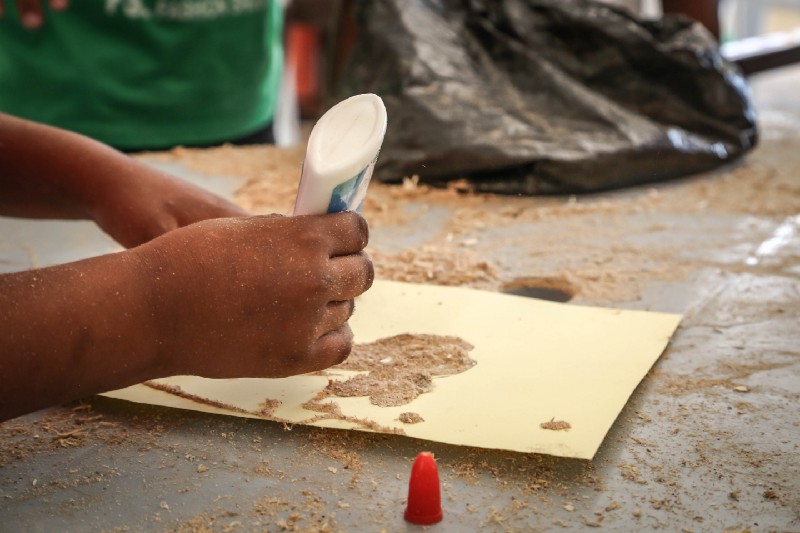
Founded in 2008, Amman-based NGO Loyac–funded primarily by the King Abdullah II Fund for Development and USAID–is also looking to build “the capacity of youth” by not only getting young Jordanians into the job market, but seeing them become entrepreneurs and job creators themselves. “We consider ourselves the link between the universities and private sector,” says its general manager, Raed Madanat. The group runs a program in which 1,000 university students gain access to internships in the public and private sectors, and in return do 18 hours of volunteer work to enrich local communities.
Meanwhile, Loyac is likewise attempting to foster critical thinking skills early on through a beginner’s English program. While all of Jordan’s public schools teach English, they focus on grammar. One teacher constantly encourages her students to keep talking and to forget about mistakes. Grammatical accuracy doesn’t matter, she stresses. “Being understood and expressing your ideas does.”

The role of international donors and NGOs, however, often comes with critique. Despite good intentions, too often their tendency is to use a copy-and-paste method with a one-size-fits-all curriculum developed in the West. Even if this isn’t true in every case, it remains unclear how much the Jordanian education system can truly be revolutionized without direct and holistic efforts from the government. There’s also the issue of student dropout rates–which is where a few micro-initiatives, led by local volunteers and focused on intervention that begins younger and outside the classroom, may be helping.
Born in a refugee camp in Jerash, the impoverished northern neighbor of Amman, Saddam Sayyaleh was orphaned as a child and left to the care of his extended family. Neglected, he loved the books at school. But with few friends, little teacher care, and overcrowded classrooms, he was bullied and took to skipping classes–forging a small escape among the well-preserved Roman ruins the city is known for.
By age 15, Sayyaleh stopped attending school altogether. He scraped together enough money for a plane ticket to India–anything to get away from the upbringing he loathed–but was back again the next year when he ran out of money, volunteering for his uncle’s NGO caring for orphans.
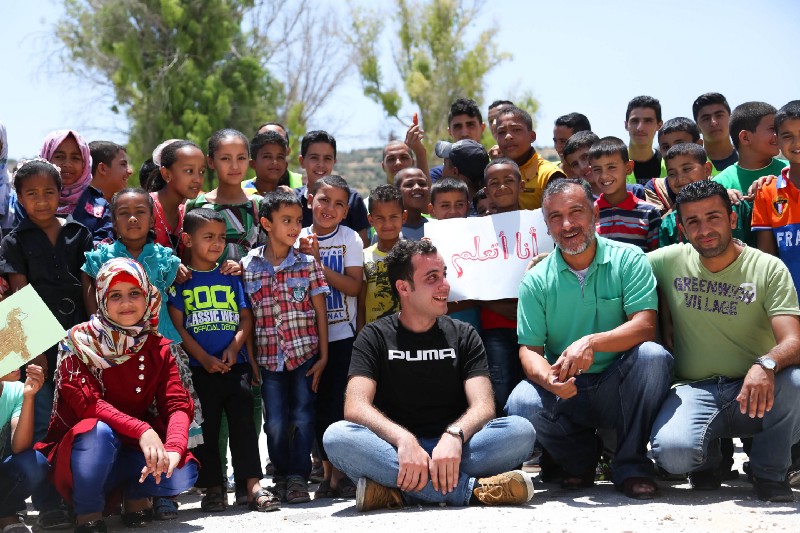
Inspired by retracing his own history, in part by offering Jordanian children what he never had, Sayyaleh established I Learn in 2014–an entirely volunteer-run initiative providing education and community support in eight different locations. The target communities, in Jerash, Amman, Zarqa, as-Salt, and Ajloun, decide their own needs, while volunteers and teachers all hailing from the same locality act on those needs, providing lessons, workshops, and social support.
Sayyaleh’s primary aim is to create cohesive communities that care for each other, and will eventually become self-sustaining–support systems that he says operate on one central principle: empathy. In Jordan, “There’s no social cohesion for children,” he explains, “”¦no sense of social responsibility.” Aware of his own past, Sayyaleh believes that student success is not a product of just the classroom, but one of the family and society at large.
In this way, I Learn is not a conventional education initiative. While teachers do provide academic support, the idea is to target issues that lead children to drop out of school. Sayyaleh stresses most the need to protect children from abuse. A 2007 UNICEF study found that a startling 50 percent of Jordanian children are physically abused by family members, or school teachers and administrators. One-third are subject to sexual harassment. Crucial to I Learn’s protection strategy has been fostering friendships between children from the same neighborhoods and schools, in order to ward off the isolation which can make them vulnerable to abuse.
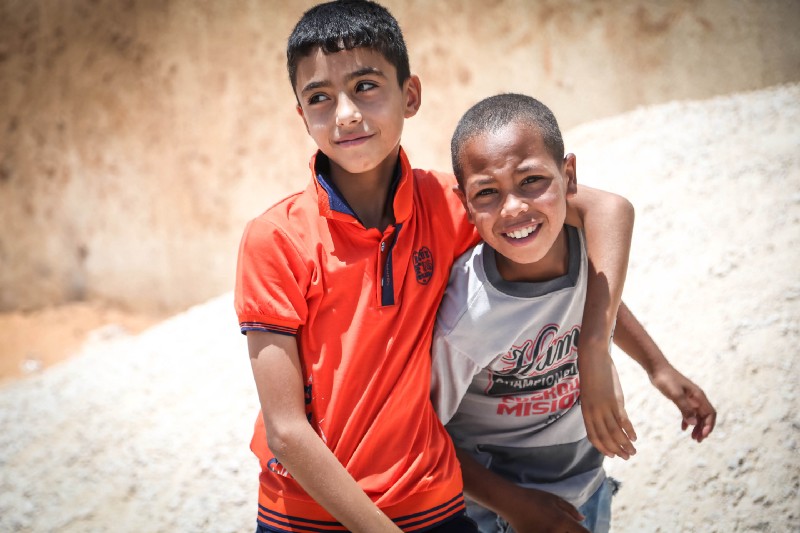
It is equally important, Sayyaleh says, that both teachers and families recognize and embrace child differences, including learning difficulties. To this end, I Learn retrains teachers and involves parents in workshops.
In the classroom, one educational aim is to stimulate creativity among students where public schools do not. Critical thinking, which Sayyaleh says is the “first step to creativity,” is the basis of the organization’s English lessons, which use role playing instead of grammar memorization. Meanwhile, classes with older students focus on soft skills for future employment such as social media literacy, and basic Word and Excel proficiency. Bolstering critical thinking skills encouraged one female student to decide against an early marriage, he says, and led another graduate to create an innovation project focusing on recycling.
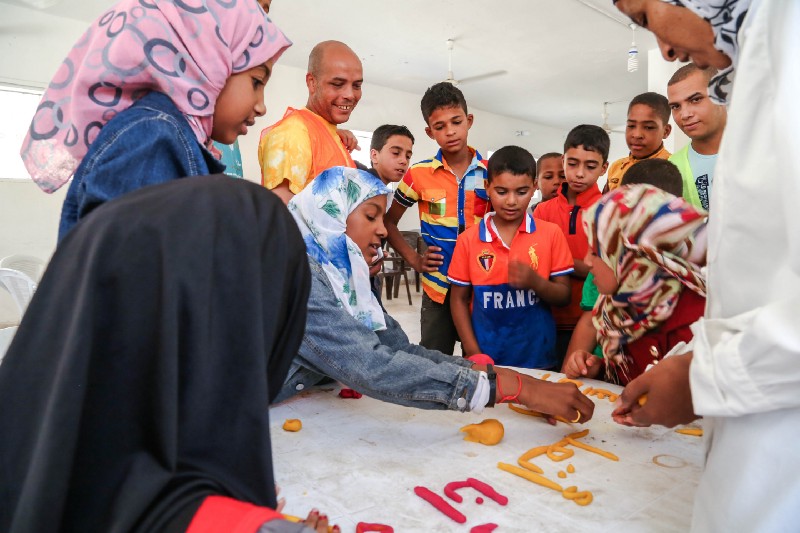
After three years of work, Sayyaleh has been approached multiple times about replicating his model for similar communities with socioeconomic difficulties in Libya and Egypt. Each time, he rejected the offers. “I want to give them a perfect model to implement,” he says.
Without international or government aid, though, he may run out of time. Funded entirely out of his pocket, I Learn was rejected for funding by international donors. His program for reaching Jordan’s most disadvantaged youth could be forced to a halt, he says, as cash is running out.
Sayyaleh’s work, and the work of others like him, is far from complete–especially as the link between reforming education and the country’s economy are becoming so bluntly undeniable. At a staged English-language parliamentary debate hosted by Young Arab Voices earlier this month, one young person summed it up as “the nightmare all Jordanian students face.” In such a moment of crisis, though, the students concluded there’s opportunity–to speak up for change until it happens.


How We Get To Next was a magazine that explored the future of science, technology, and culture from 2014 to 2019. This article is part of our How We Learn section, on the future of education. Click the logo to read more.
